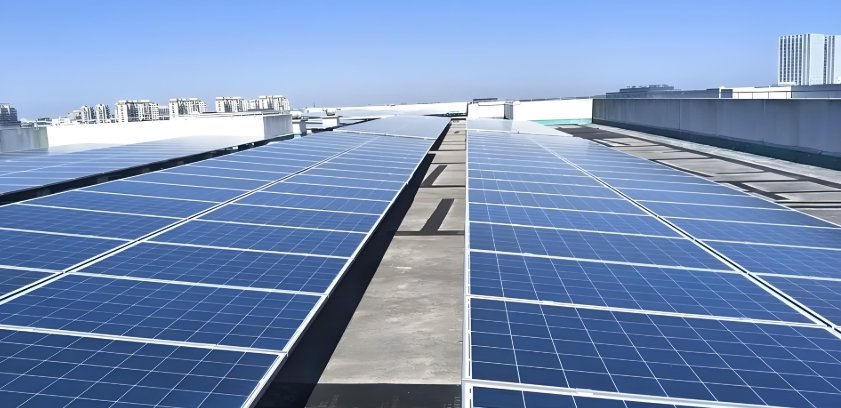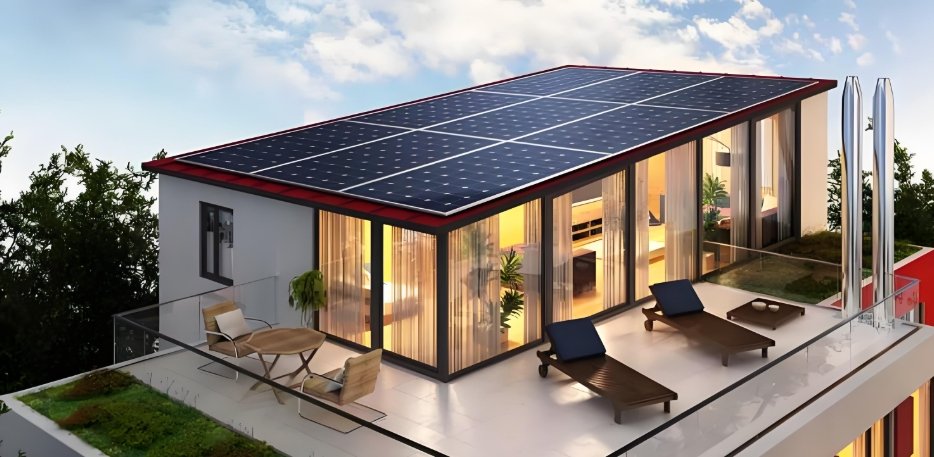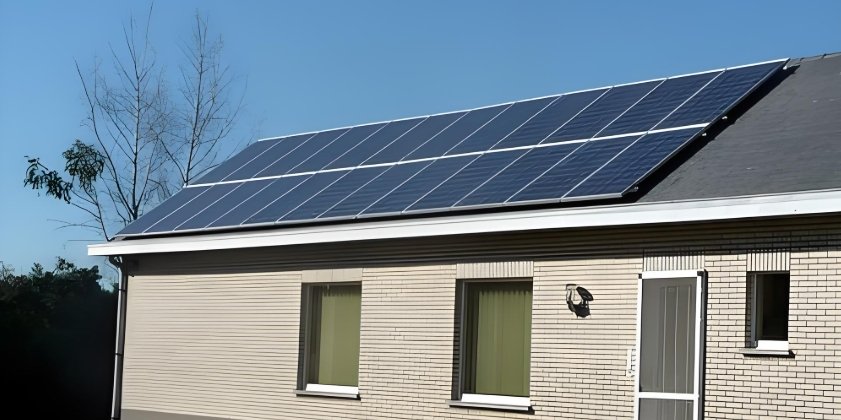
Commercial rooftop solar panels
Choosing between off-grid energy storage and hybrid energy storage systems is a critical decision for homeowners and businesses looking to secure reliable, sustainable, and cost-effective power. Both systems offer distinct advantages depending on your energy needs, location, and the level of energy independence you're aiming for. In this article, we will compare the two systems in terms of their key differences, performance in terms of energy independence and backup, cost implications, flexibility and scalability, and the specific application areas for each.
Off-grid and hybrid energy storage systems both have their strengths. Let's break down the key factors to help you decide which is better for your energy needs.
What Are the Key Differences Between Off-Grid and Hybrid Energy Storage Systems?
Off-grid and hybrid energy storage systems are designed to address different energy needs. The key difference lies in their connection to the utility grid.
Let’s explore the fundamental differences between off-grid and hybrid energy storage systems.

Modern home with solar panels
Off-Grid Energy Storage
- Independence from the Grid: Off-grid energy storage systems are entirely independent of the electrical grid. They rely on renewable sources such as solar panels1 and wind turbines2 for power generation, with the energy stored in[batteries for use when generation is low (e.g., at night or during cloudy days).
- Self-Sufficiency: These systems are ideal for remote areas where grid access is unavailable or unreliable. Off-grid systems require larger battery capacity3 to ensure continuous power supply.
- Battery Sizing: The battery capacity is crucial in off-grid systems, as it must meet the energy demands of the home or business for days without sunlight or wind.
Hybrid Energy Storage
- Grid Integration: Hybrid energy storage systems are connected to the utility grid but also have their own energy storage solution, typically using solar or wind generation. This allows excess energy to be stored in batteries and used during power outages or when energy production exceeds consumption.
- Grid Backup: Hybrid systems offer the advantage of grid backup. When energy storage is low, the system draws power from the grid to ensure continuous operation.
- Flexibility: Hybrid systems can be used in grid-connected areas, providing a balance between renewable energy usage and grid support.
Conclusion: The key difference lies in the connection to the grid—off-grid systems are completely independent, while hybrid systems remain connected to the grid for backup power when needed.
How Does Each System Perform in Terms of Energy Independence and Backup?
Both off-grid and hybrid systems offer energy backup, but their performance in terms of energy independence and backup power varies.
Let’s analyze how each system performs in terms of energy independence and backup capabilities.

Rooftop solar panel installation
Off-Grid Energy Storage
-
Energy Independence:
- Total Self-Sufficiency: Off-grid systems provide complete energy independence4, making them ideal for rural or remote areas where grid electricity is not available. With a properly sized battery bank5 and energy generation system, users can be fully self-reliant for their energy needs.
- Constant Power: The system generates and stores its own power, so there is no reliance on external sources, making it the best choice for those looking to be entirely off the grid.
-
Backup Power:
Hybrid Energy Storage
-
Energy Independence:
- Partial Self-Sufficiency: Hybrid systems provide partial energy independence. They reduce reliance on the grid by storing excess energy produced during the day or in good weather conditions. However, they still rely on the grid during periods of low production (e.g., at night, during cloudy days, or when energy consumption exceeds generation).
-
Backup Power:
- Grid Backup: Hybrid systems provide backup power7 by allowing users to draw power from the grid when necessary. Additionally, they can continue to supply power during grid outages if the system is set up for backup.
Conclusion: Off-grid systems offer total energy independence, while hybrid systems provide a mix of energy independence and grid backup for added reliability.
What Are the Cost Implications of Off-Grid vs. Hybrid Energy Storage?
Cost is a major factor in deciding between off-grid and hybrid systems. The upfront investment, ongoing maintenance, and long-term savings vary depending on the system type and the specific needs of the user.
Let’s compare the cost implications of both systems.

Residential solar panels
Off-Grid Energy Storage
-
Initial Cost:
- Higher Upfront Cost: Off-grid systems typically require larger battery banks and more extensive solar or wind generation systems8. The upfront costs for these systems are higher than hybrid systems because they must be capable of meeting all energy needs independently.
-
Maintenance:
- Higher Maintenance: Off-grid systems require more maintenance, as they rely entirely on renewable generation9 and storage. Battery replacement, system checks, and ensuring optimal operation can add to long-term costs.
-
Energy Savings:
- Complete Energy Independence: Once installed, off-grid systems allow users to eliminate electricity bills entirely, leading to significant long-term savings, especially in areas with high electricity costs.
Hybrid Energy Storage
-
Initial Cost:
- Lower Upfront Cost: Hybrid systems are generally less expensive than off-grid systems because they rely on the grid as a backup. This means a smaller battery bank and solar/wind generation system are required.
-
Maintenance:
- Lower Maintenance: Hybrid systems typically have lower maintenance costs because they can draw from the grid when needed, reducing wear and tear on the energy storage system.
-
Energy Savings:
- Partial Energy Savings: Hybrid systems help reduce energy costs by using stored energy during peak hours or grid outages. However, users still pay for grid electricity when needed.
Conclusion: Off-grid systems require higher upfront costs and maintenance but offer long-term energy savings. Hybrid systems are more affordable upfront and offer partial savings, with lower maintenance costs.
Which System Offers Better Flexibility and Scalability for Homeowners and Businesses?
Flexibility and scalability are important factors for homeowners and businesses that may need to adjust their energy systems as their needs change over time.
Let’s explore the flexibility and scalability of off-grid and hybrid energy storage systems.

Eco-friendly home with solar panels
Off-Grid Energy Storage
-
Flexibility:
- Limited Flexibility: Off-grid systems are less flexible in terms of scalability because they need to be sized correctly from the beginning to meet the household or business’s energy needs. Expanding the system can be costly and complex.
-
Scalability:
- Low Scalability: Off-grid systems are typically designed to meet a specific load, and expanding beyond that requires adding more solar panels and batteries. This can be expensive and involve significant upgrades to the system.
Hybrid Energy Storage
-
Flexibility:
- Greater Flexibility: Hybrid systems offer more flexibility because they can work with the existing grid infrastructure. Users can add additional solar panels or batteries as needed to increase their energy independence without a complete system overhaul.
-
Scalability:
- High Scalability: Hybrid systems are more scalable because they are not entirely reliant on independent energy generation. Users can easily add more storage capacity or generation capacity as their energy needs grow.
Conclusion: Hybrid systems offer greater flexibility and scalability, making them ideal for homeowners and businesses that anticipate changes in their energy needs over time.
What Are the Application Areas for Off-Grid and Hybrid Energy Storage Systems?
Both off-grid and hybrid systems are suitable for different types of applications. The right choice depends on your location, energy needs, and whether or not you have access to the grid.
Let’s examine the application areas for each type of system.
Off-Grid Energy Storage
-
Remote Locations:
- Off-grid systems are ideal for remote locations10 that do not have access to the electrical grid. These areas can benefit from complete energy independence, eliminating the need for costly and unreliable grid connections.
-
Rural and Backup Needs:
- Off-grid systems are also suitable for rural homes or cabins that only need power during specific times of the year. They are also a great choice for those looking to be fully independent from external power sources.
Hybrid Energy Storage
-
Urban and Suburban Areas:
- Hybrid systems are more suitable for urban11 and suburban areas12 where grid power is reliable but users still want to reduce their reliance on it. Hybrid systems are also a good choice for areas with frequent power outages or high electricity costs.
-
Commercial Applications:
- Hybrid systems are well-suited for businesses13 that want to reduce their energy costs and have access to the grid for backup power. They can help manage energy consumption and provide backup power during grid outages.
Conclusion: Off-grid systems are best for remote or rural locations where grid access is unavailable. Hybrid systems are better for urban, suburban, and commercial settings, offering flexibility, scalability, and grid backup.
Conclusion
Choosing between off-grid and hybrid energy storage systems depends on your location, energy needs, and budget.
- Off-grid systems offer total energy independence, making them perfect for remote areas without grid access but come with higher upfront costs and maintenance.
- Hybrid systems provide a balance between energy independence and grid reliability, making them more affordable upfront, easier to maintain, and ideal for urban or suburban environments.
Consider your energy goals, budget, and future expansion plans when deciding which system is right for you. Both types of systems provide valuable benefits, but the best choice will depend on your specific circumstances.
-
Learn about the different types of solar panels and their efficiency for energy storage. ↩
-
Understand the role of wind turbines in renewable energy systems and how they integrate with storage. ↩
-
Find out how to calculate battery capacity for off-grid systems and ensure enough power for your energy needs. ↩
-
Learn about energy independence and how off-grid systems make homes completely self-sufficient. ↩
-
Discover how battery banks are sized to provide enough power in off-grid and hybrid systems. ↩
-
Understand the role of batteries in off-grid systems and how they ensure reliable power storage. ↩
-
Find out how hybrid systems use grid backup to ensure continuous power during outages. ↩
-
Learn about the requirements and costs of solar or wind generation systems in off-grid setups. ↩
-
Explore how renewable generation systems contribute to the maintenance and costs of off-grid energy systems. ↩
-
Explore how off-grid energy systems benefit remote areas lacking reliable grid access. ↩
-
Learn about energy solutions for urban areas seeking flexibility in their energy supply. ↩
-
Discover how suburban areas can use hybrid systems to reduce dependence on the grid. ↩
-
Find out how businesses can use hybrid energy storage to cut costs and improve energy reliability. ↩



